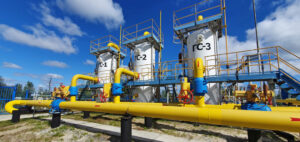The aim of the Paris Agreement for COP28 is to contain the global temperature rise to well below 2°C, and ideally to 1.5°C, compared with the pre-industrial era (the world is at around +1.2°C). However, a technical report on the first “global assessment” of the Paris Agreement, published in early September, unsurprisingly finds insufficient action, despite the persistent climate crisis and the imminent approach of COP28 on climate.
Current Challenges
The world needs to move away from polluting fossil fuels and peak its CO2 emissions by 2025. The experts noted that “much more needs to be done, now, on all fronts” to tackle the climate crisis. UN-Climate has therefore submitted these conclusions to the various governments for political decision. The outcome of this assessment, which they are expected to reach at COP28, will be held from November 30 to December 12 in the United Arab Emirates. Although there are differing views on the details of how to achieve the Paris Agreement targets, governments expressed broad agreement that past climate action has been insufficient. Indeed, more action from all parties, as well as support for developing countries, was needed to contain global warming to 1.5°C.
The Importance of Renewable Energies
This report, which does not go into detail about the positions of individual countries or blocs of nations, shows that some subjects are consensual, while some proposals are supported by only certain parties. In particular, it emerges that “many parties” – but not all – are in favor of collective targets in terms of renewable energy or the development of electric vehicles, and emphasize that moving away from fossil fuels is “vital for fair energy transitions towards carbon neutrality”. This report puts the cards on the table – except that it’s not a game,” stressed Simon Stiell, Executive Secretary of UN-Climate. “Nations should make use of these contributions to build consensus for an ambitious outcome and actions during this crucial decade,” he added, quoted in a statement.







